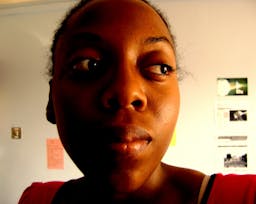Pushing it downstream
Jan 21, 2015
Story
One of the biggest barriers to change is CULTURE. Where women know nothing else but patriarchy, it is very difficult to engage with them about gender-related issues, even when they affect them directly.
Many Zimbabwean women believe that sex is solely about their husband's pleasure, that marriage and motherhood by 25 are the only markers of success. If such beliefs are deeply entrenched within a person, then it's a challenge to address and change them.
The other challenge - which is an offshoot of the first - is that you therefore normally only find 'empowered' women talking among themselves. How do you tell a woman who has no other means of survival (beyond her husband) to leave an abusive marriage? What would you advise her to do, knowing full well that she will become a social pariah if she speaks up? Some of what we talk about only applies to a certain class of women - the ones with social and financial currency who can walk away from bad situations because they own their own property - both physical and intellectual. And in a way, some of what we say is elitist, only benefiting those already in the know.
Culture is hard to address and has to be tackled sensitively, lest one's efforts be labelled propagandist or 'un-African'.
But the real key is to strengthen women's initiatives so that they are able to provide sustained support to women in vulnerable situations. Zimbabwe's Musasa Project - a women's organisation working against domestic violence - is a classic example of what I mean. Currently, they are able to provide female domestic violence survivors with only about 3 weeks temporary shelter because of funding challenges. After that, the woman is on her own in a country that looks down upon divorcees and has 80% unemployment. A similar situation happens at the Adult Rape Clinic which cannot provide any support to rape survivors beyond basic medical care and counselling.
If I, as a woman, know that the services that should help can actually add to my ostracism, will I take them up? In essence, what I am saying is that as much as information dissemination is crucial, there needs to also be systems strengthening to make women feel safe in making their decisions to speak up.
I believe that I am one part of the process - the information dissemination and advocacy part. Someone else is the systems strengthening agent, the policy formulator, the donor. Through World Pulse I am hoping to build relationships with people whom I can work with towards achieving holism in our approach to issues. I have been writing for a long time but I am always mindful of the fact that the people who access what I write are mostly women who can read for pleasure and appreciation and not the particularly marginalised who need to be reached.
More work is needed to push the word downstream because that's where it's really needed!




